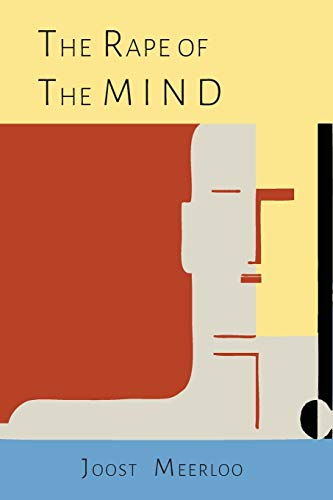The Rape of the Mind
The Psychology of Thought Control, Menticide, and Brainwashing
Joost A.M. Meerloo
BOOK REVIEW

The haunting echoes of psychological manipulation resound in The Rape of the Mind: The Psychology of Thought Control, Menticide, and Brainwashing by Joost A.M. Meerloo. This powerful tome plunges you into the dark abyss of human consciousness, where thoughts can be twisted, beliefs can be reshaped, and even the most steadfast minds can be shattered. Meerloo, a Dutch psychiatrist whose experiences during World War II fueled his insights, compiles a provocative analysis of the methods employed by totalitarian regimes and extremists to exert control over individuals. It is not merely an academic work; it is a call to arms against the pervasive threats of mental subjugation.
Drawing from a rich tapestry of historical context, Meerloo's narrative commands attention. His exploration unfolds through a meticulous dissection of psychological tactics: coercion, indoctrination, and brainwashing. With each page, you can almost feel the oppressive weight of totalitarian ideologies pressing against your psyche. The author doesn't shy away from the grotesque realities of manipulation; instead, he thrusts them into the light, igniting a fire of indignation within readers. You may find yourself nodding fervently as Meerloo reveals the chilling similarities between the psychological control techniques wielded by regimes and the subtle, insidious forms of manipulation present in modern advertising and media.
The work's central theme, menticide, strikes like a lightning bolt. Not merely the act of killing the mind but rather the sublimation of independent thought, it captivates and appalls. Readers have shared their thoughts on this pivotal concept, asserting it resonates deeply within today's society, where misinformation and propaganda are rampant. Critics laud Meerloo's ability to interweave theory with practical examples, calling it a wake-up call for generations more concerned with the latest trends than the erosion of critical thought. This duality of historical reverence and modern relevance fosters a troubling, yet essential, conversation that every one of us needs to engage in.
As you traverse through Meerloo's exploration, keep in mind the treacherous path hybridized by cultures that endorse conformity over individuality. The author paints vivid images of regimes that have historically thrived on fostering a culture of fear, leaving a trail of disillusionment in their wake. Yet, The Rape of the Mind is more than a chronicle of despair. It is also a beacon of resistance, urging readers to cultivate critical thinking and skepticism in the face of overwhelming narratives. The strength of the human mind is paramount, tantamount to an act of rebellion in a world predisposed to blanket conformity.
Amidst the harrowing revelations, readers express a profound sense of urgency. They convey how Meerloo's insights are not just fanciful theories buried under dust but rather alarmingly pertinent today, where digital landscapes can be just as suffocating as any totalitarian regime. Political and social commentary reveals a kaleidoscope of opinions-some underscore Meerloo's prophetic warnings while others express frustration that the work remains less mainstream despite its undeniable relevance. "Why are we not shouting this from the rooftops?" some critics lament, imploring the wider world to grasp the book's essence.
The ripple effects of The Rape of the Mind stretch far beyond its pages. It has inspired a cadre of thinkers, activists, and educators who challenge authority, torching the mental shackles that have long held society hostage to complacency. Its narrative has echoed in places like universities and community forums, sparking vital discussions about freedom, autonomy, and resistance against psychological coercion in our daily lives.
Your emotional journey through Meerloo's text will surely be intense; it may infuriate, inspire, and compel. You will come face-to-face with the uncomfortable question: how does one safeguard their mind against the pervasive influences around them? Engaging with this book is to embark on a process of reclaiming one's self-a treasure buried beneath layers of societal constructs that insist you conform.
The Rape of the Mind is not merely an account of what has transpired; it is a fervent plea to recognize the potential dangers that lurk as you navigate your life. Each chapter draws you deeper into contemplation, forcing you to confront the uncomfortable reality that your thoughts may not entirely be your own. The urgency is palpable, the stakes are high. Are you ready to confront the truth? It's time to arm yourself with the knowledge and the courage to think critically, breaking the chains of menticide forever. 🖤
📖 The Rape of the Mind: The Psychology of Thought Control, Menticide, and Brainwashing
✍ by Joost A.M. Meerloo
🧾 320 pages
2015
#rape #mind #psychology #thought #control #menticide #brainwashing #joost #am #meerloo #JoostAMMeerloo